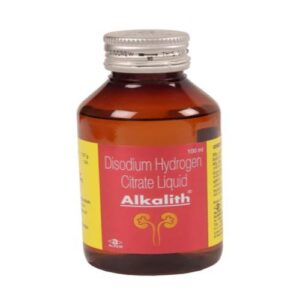LITHIUM CARBONATE EXTENDED REL
LITHIUM CARBONATE EXTENDED REL: Lithium carbonate extended release is a medication that is primarily used to treat bipolar disorder. It is an extended-release form of lithium carbonate, which allows for once-daily dosing.
The exact mechanism of action of lithium is not fully understood, but it is thought to involve the modulation of neurotransmitter activity in the brain, particularly serotonin and norepinephrine. It is believed to stabilize mood by reducing manic and depressive episodes associated with bipolar disorder.
The dose of lithium carbonate extended release varies depending on the individual’s response and tolerance, as well as the severity of the condition being treated. The starting dose is typically between 300 and 600 milligrams, taken once or twice daily. This can be gradually increased under medical supervision to achieve optimal therapeutic levels. Blood tests are often done to monitor lithium levels in the blood, as toxicity can occur if levels become too high.
While lithium carbonate extended release is generally well-tolerated, it can cause some side effects. Common side effects include nausea, diarrhea, stomach pain, dry mouth, increased thirst, increased urination, weight gain, and mild hand tremors. These side effects are often transient and diminish with continued use. More serious side effects, such as confusion, vomiting, drowsiness, slurred speech, and muscle weakness, should be reported to a healthcare professional immediately, as they may indicate lithium toxicity.
It is important to note that lithium carbonate extended release should only be taken under the supervision of a healthcare professional, as it requires careful monitoring due to the potential for toxicity. Additionally, it can interact with other medications and substances, so it is essential to inform the healthcare provider of all other medications being taken.

